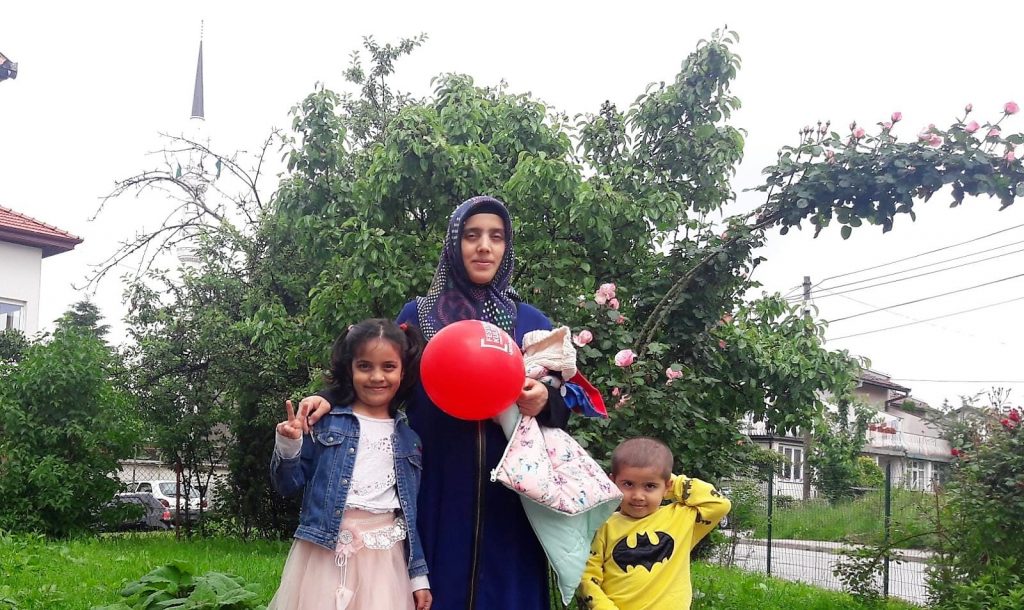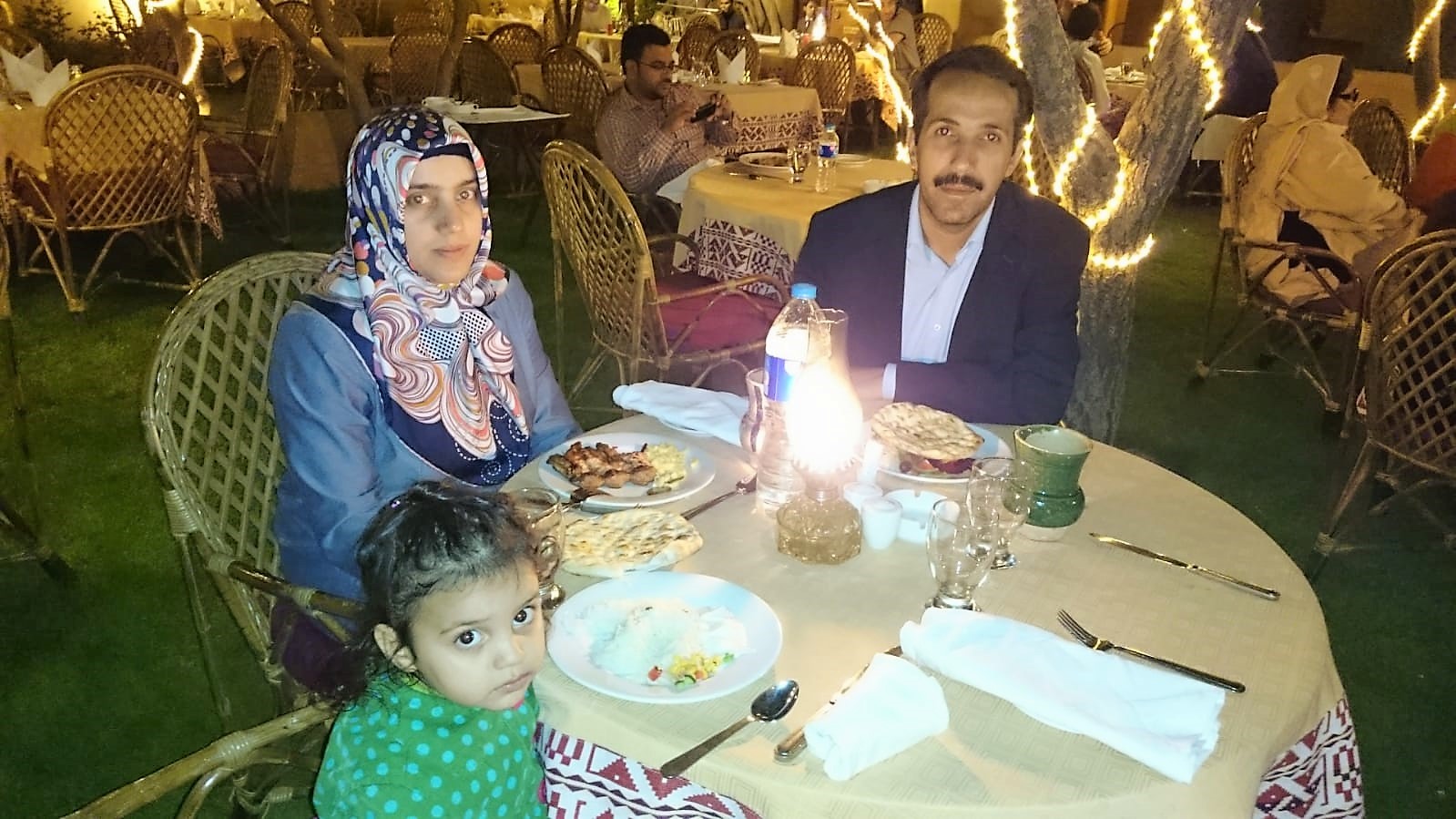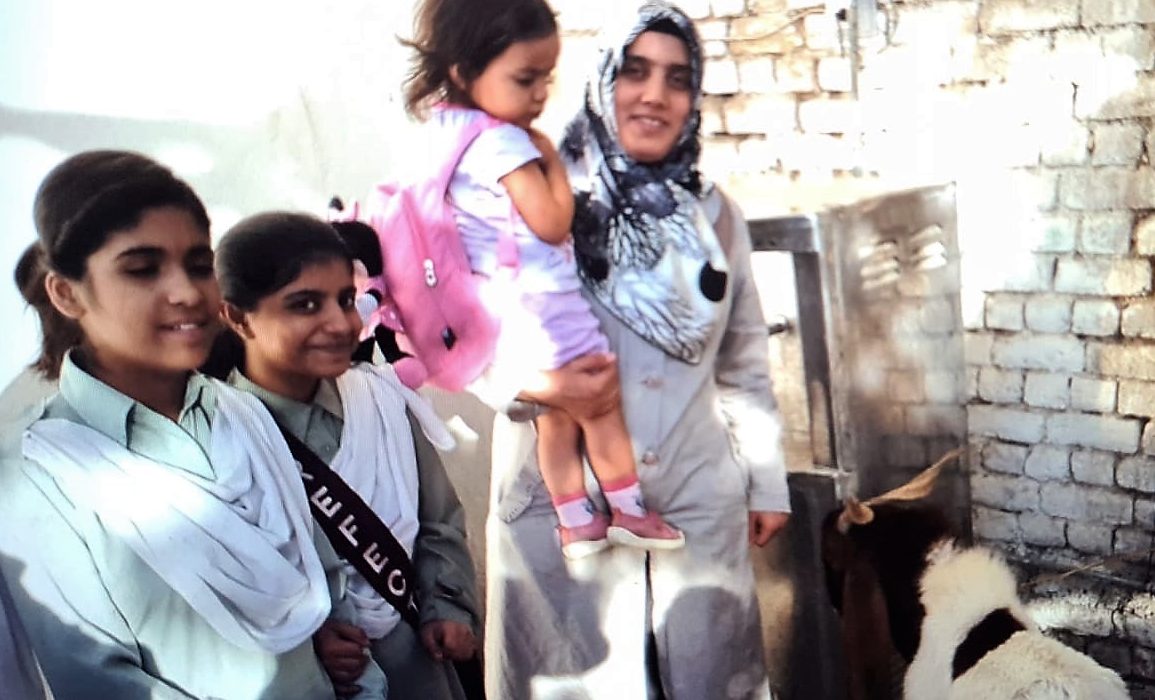Zeynep Simsar, who left Hacettepe University for Pakistan: The thrill for “emigration” made me even forget missing my family

Our students became our pride in both science and social activities
September 13, 2021
PakTurk Schools teacher Zeynep Simsar: Everyone I saw in Pakistan was like a family member
September 16, 2021Zeynep Simsar was one of the students who could not continue their studies in Turkey due to the restrictions on the practice of their faith. Like many of her peers, she found the solution to go abroad for higher studies. She went through profound changes in Pakistan, where she went on a recommendation. We talked with her about her departure to Pakistan and the transformation she experienced in her realm of thought.
Sister country Pakistan was among the first hubs where the volunteers of the Hizmet Movement chose to open educational institutions worldwide starting from the early 1990s. Thousands of education devotees including teachers, students, and businesspeople endeavoured for the people of this country. Most of these devotees arrived in Pakistan in their teens and while bustling to raise a new generation, they also grew up, matured and established their own lives in this land. That is why Pakistan became their “second home”.
Zeynep (nee Durmuş) Simsar, who left her family and home country behind at the age of 19 and set out for her university education, was one of those devotees of education. She studied Mathematics in Pakistan, where she lived for 12 years, became a teacher, met her life partner, got married, and gave birth to two children. If she hadn’t had to, she would never have thought of leaving Pakistan. Now when we ask her to look back and recap her memories while living in a different country, she first says, “What’s there to tell?” Even though Zeynep says so, we know teachers have a lot to tell for the present and the future generations. This is because writing history is as vital as experiencing history.
Zeynep’s family endeavoured for giving her a good education and supported her at every stage. Having qualified in the 2005 University Selection and Placement Exam, she was placed in the Nursing (English Medium) undergraduate degree program at the Hacettepe University in Ankara. After a year of preparatory English and during the second semester of her freshmen year, she felt difficulty in attending the university because she would have to wear a uniform that was not suitable with her belief, and so she decided to drop out. Actually, after this critical decision, Zeynep’s departure for Pakistan started. You can read the rest of her story in our interview below.
I HAD NOT REALIZED THE WORTH OF LEARNING ENGLISH
– How and when did you decide to go to Pakistan? What were the reactions of your family and social circle?
When I was in high school, I used to watch Indian movies on TV. I had a fascination with places like India and Pakistan since that time. I even thought, “Would I ever visit those places some day?” I was intrigued by the colourful and earnest life of the people in that region. When I went to university in Ankara, I heard there were students abroad who both attended to the university and participated in education services voluntarily. Thanks to the additional courses I took in the secondary school and the high school, I passed the English preparatory class in Hacettepe very easily. My mother and father paid great attention to my learning English and so they sent me to tuitions. At that age I did not realize how important that was to me. I was both delighted that my family sent me to English tuitions and surprised as I did not know where I would use my English skills. Because I did not plan an English-based education. Now I think, Almighty Allah prepared me for something further.

We took theoretical nursing courses in the first semester at the university. It was compulsory to wear short-sleeved uniforms without a headscarf during the second semester internship. It was my headscarf and hijab that made me into me. I thought I would have a hard time wearing a uniform that was not suitable with my sensitivities. On the first day of my internship, I put on my uniform and looked again to see if I could do it. I had to stand with my head and arms open among men who were not from my immediate family, and I would not be able to do that. I decided to drop out of school that day. I would sit for the university entrance exam again and choose another department. My family respected my decision and they supported me. At that time, I also considered continuing my higher education abroad. Since it was a Muslim country, I found Pakistan more attractive among options. My mother was upset that I was going to a distant country, but as always, they left the final decision to me.
WE WERE WELCOMED WITH GARLANDS
– What kind of preparations did you make before you set off for your journey? Would you share your feelings and thoughts during that process?
I only knew Pakistan was a warm country. I had taken some comfortable clothes, stationery and some food with me. My first year there was a good experience. I learned that I needed to buy thinner clothes that would keep me cool, and that I would not find foods like olives, bulgur, cheese, or pretzels there. While I was about to start my journey, I had the excitement of youth, adventure, and prospects for meeting different people, all powered by my age of 19. For this reason, I forgot the sorrow and yearning while leaving my family. During my first year abroad, I realized how burning these feelings were. The desire to see different places and one of my sorority sister’s advice as “Go abroad and you’ll have a wider horizon!” excited me. For that moment, those words made me forget missing my family. I was ’emigrating’ but I did not know exactly what it really meant then.
We departed from Istanbul on September 11, 2005 with an evening flight with a few friends who went to Pakistan for university education like me. My family had saw me off from Trabzon. Especially my mother was very upset but did not say anything to me because she wanted me to receive an education. We landed in Pakistan 5 hours later, but we arrived at around 2:00 a.m. past midnight because of the time difference of 2 hours. It was the first time I experienced the time difference and I was quite impressed. There were no Turks other than the flight attendants and us on the plane. The other passengers were our Pakistani sisters and brothers. They were eyeing us curiously, and we were curious about them too.
We got off the plane and cleared the security checks. I can never forget the first instant I came out of the terminal to the open air. Oh my God, it was a scent I was not used to. It smelt as if it was burnt milk. Not to forget the excessive humidity that enveloped me. Some sisters and brothers had come to receive us at the airport. They welcomed us by placing garlands around our necks. We were so much pleased and honoured by that welcome. We got in a minibus and started driving to the homes of the families who would host us on that day. It had rained and everywhere was wet, but I saw people lying outdoors on the green belts or even on the vegetable and fruit stalls. Actually, I was not surprised because I knew that I could see such scenes in hot countries. I can say I got used to the country quickly, as I did not have very high expectations in terms of living conditions.
THE MEMORABLY SWEET RELIEF WHEN THE POWER GOT BACK ON
– In which city did you live first, and what did you do?
Actually, I went to Pakistan to study English, but I changed my mind and studied Mathematics at the University of Karachi. I graduated in 2011. We used to stay in a house we rented with fellow students. In addition to my own lessons, I was also teaching Turkish and Mathematics to Pakistani high school students.
– In your opinion, what were the most favourite and the most trying things in Pakistan?
What I loved the most was the love of the Pakistani people and their hospitality for us. I never felt out of place there, and I never experienced indifference or disdain from anyone. Maybe one of the things which gave me hard time was oily foods, but I got used to them in time. Meanwhile, the frequent power outages were a challenge, because the stifling heat descended on you when the constantly running fans stopped in the house. No matter how sleepy you were, the level of humidity would immediately wake you up and it would be very difficult for you to sleep again until the power came back on. This period would sometimes last 1-2 hours. Among my favourite things I can add the feeling of relief and instant chill when the power came back on. During the power outages, we would also climb on the roof of our house to get some relief in the open air.
– How many years did you live in that country? May you tell us about your duties and the cities you lived in?
I spent the 12 years and 10 months of my life in Pakistan. I grew up there and matured. That’s why Pakistan became no different than a second homeland for me. During my five-and-a-half year student life in Karachi, I also worked as a tutor in the school hostel. Karachi can be called the most humid city in the country because it is by the ocean. Karachi reminded me of Istanbul because it was the first capital of Pakistan and was a cosmopolitan city that received migrants from everywhere. When the monsoons fell, the roads were flooded because the infrastructure was overburdened; there were cases when floodwaters entered the cars as well.
I first started teaching at Khairpur and stayed there for two years. The climate there too was dry and hot. However, the surroundings full of banana, mango and date trees could make you forget the temperature. Other than one, there were not many large shopping malls in the city. For shopping, it was necessary to travel to the larger district, which was 1.5 hours away. However, my favourite spot was the school garden.

I worked in Quetta for the next three years. Over there, the summers were not as hot as in the other cities; it was a city located among mountains and the winters were harsh. During the last two years before leaving Pakistan, I worked in the capital, Islamabad. It was a green, quiet, calm city where mostly businesspeople lived. From that aspect, I can say Islamabad was similar to Ankara. The most common and beautiful aspect of all cities for me was that our students and parents who loved us and considered us as one of their own families.
I APPRECIATED HODJAEFENDI MORE THERE
– What kind of changes – marriage, children and so on – occurred in your life during your stay in Pakistan?
I had received my basic religious education from my family, but I can say that the process of living more sensitively and putting my knowledge into practice started for me in Pakistan. For example, I learned that people’s personal rights were not such a simple matter and that it was necessary to ask even when taking someone else’s pen and paper. While I was staying in the same house with my fellow students, I was the in-charge of the house. During that period, in terms of the orderliness of the house, managing expenses, and many other issues, I realized better what duties of parenthood really were.
I underwent many changes in my spiritual life over time as well. As I was walking on the path towards attaining Allah’s divine approval, I learned that I should hold the hand of my siblings in faith who had no knowledge of this path or did not know enough. Before I went to Pakistan, I did not know what “enjoining goodness” really meant. I had learned the basics of our purpose in life and what our duty of servitude was from my parents, but I thought it would be enough if I lived it all by myself. In Pakistan, I learned how important it was to encourage others for the sublime values I believed, even as far as I knew.
Before I went to Pakistan, I had listened to Fethullah Gülen Hodjaefendi‘s taped sermons and conversations. However, when I went to Pakistan, I think I could better appreciate his love for humanity, the purpose of the services for which he devoted his life, his heartbreaks and the reasons why he shed tears.
After graduating from the university in 2011, I met my husband, who is a Turkish teacher. We both aspired for touching the hearts of more people, reaching out to more students, and preparing them for the future. Allah bestowed us with a daughter and a son. If we had not been compelled, we would have never left Pakistan; we would have stayed there to raise our children and led our lives by serving to our Pakistani sisters and brothers.
To be continued…
(2) PakTurk Schools teacher Zeynep Simsar: Everyone I saw in Pakistan was like a family member





No Comment.